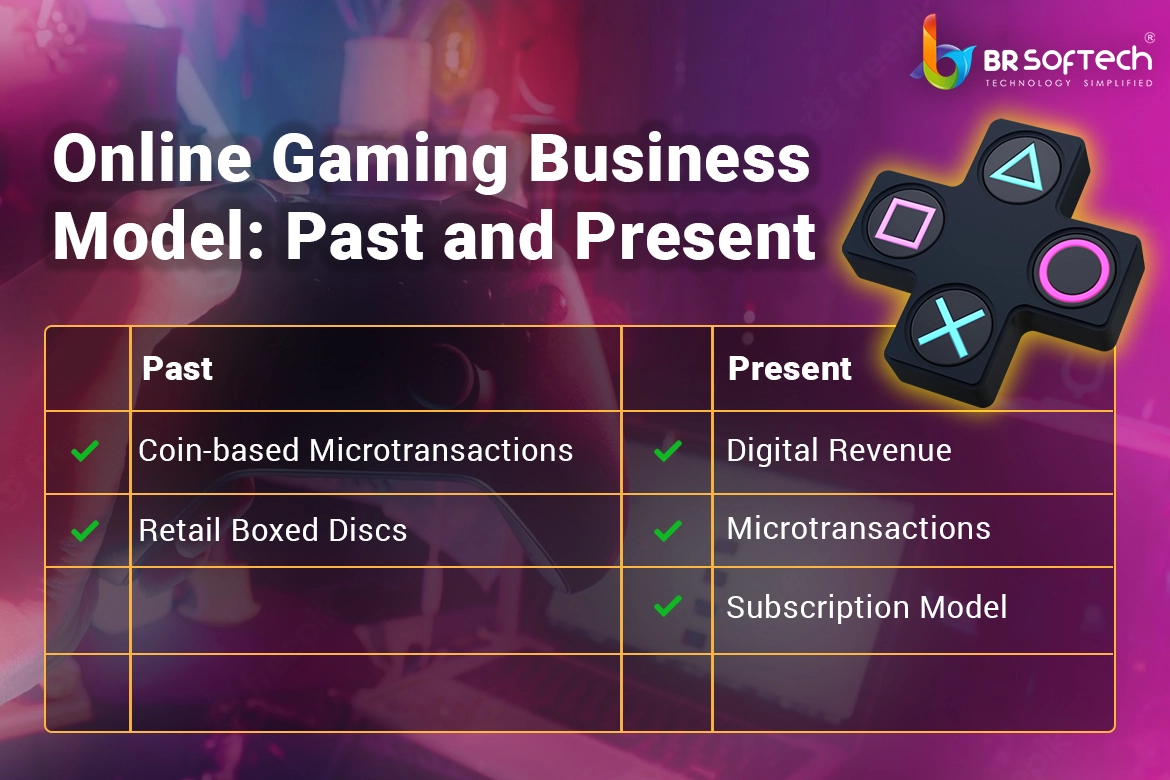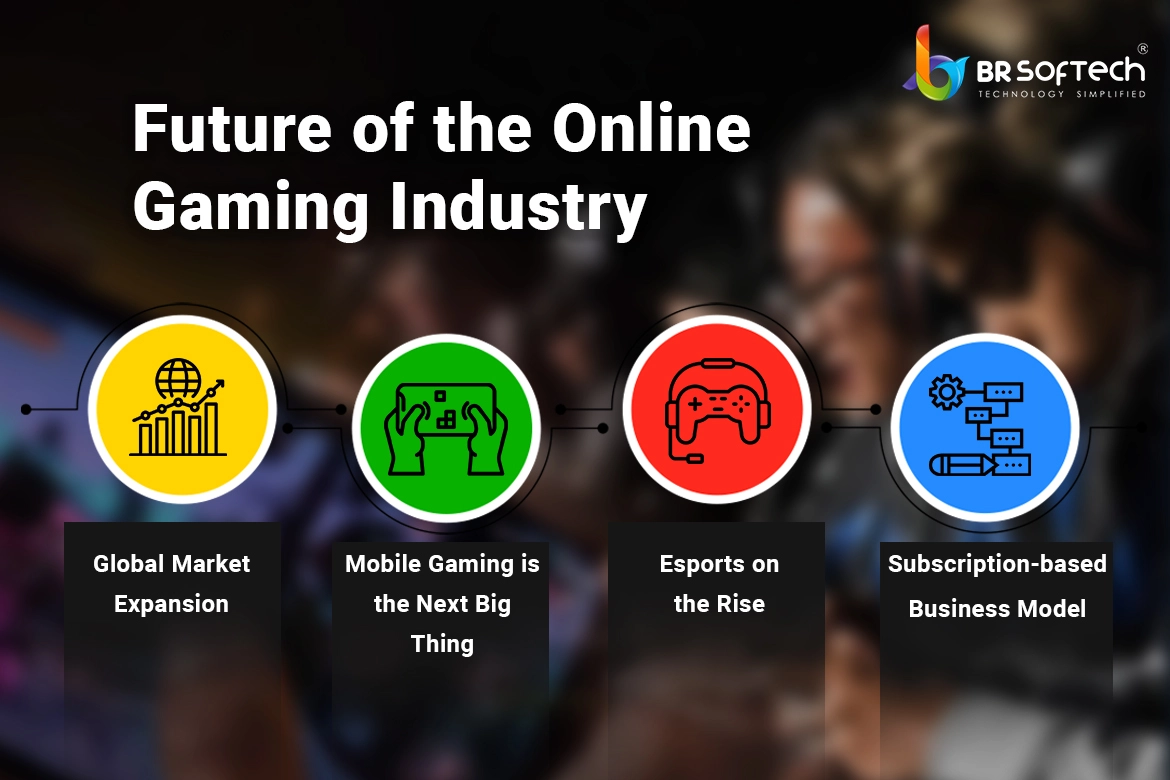The video gaming industry has seen some massive innovations in the past decade. With the advent of mobile gaming, the online gaming industry witnessed a paradigm shift as gamers gravitated towards near-universal accessibility and worldwide connectivity of mobile gaming. Today, the industry is one of the fastest-growing industries in the world and it is the preferred choice of entrepreneurs all around the globe to invest in this flourishing industry.
Online gambling has been the newest addition to the video gaming industry. Online casinos that provide betting games were popularized during the pandemic. During the lockdown, when land-based casino establishments came to a halt, online gambling businesses surfaced and provided bettors with an alternative to quench their gambling thirst. Today, the online gambling market is massive and has maintained its dominance in crucial regions of the world.
One of the reasons why investors are showing keen interest in the online gaming industry is due to the various business models the industry offers. In the past, the primary distribution method was boxed discs. However, with growing digitisation, distribution methods have changed significantly. If you are an entrepreneur and are having doubts about diving into this industry, fret not. In this blog, we will give you an in-depth look at the business models of the video gaming industry and highlight why it is a good choice to invest in this lucrative industry.
Online Gaming Industry: Market Overview
- According to Statista, the online gaming industry is worth $197 billion in 2022. It is expected to grow at a CAGR of 7.6% during the forecast period(2022-2027), resulting in a projected market value of $285 billion by the year 2027.
- The United States is the biggest market for video games with net revenue of $54.9 billion. China ranks second with an estimated revenue of $44 billion.
- Mobile games were the fastest-growing segment with more than $150 billion in annual revenue.
- In 2022, there were about 3.2 billion gamers worldwide with over 1.7 billion gamers who prefer mobile gaming.
- 65% of adults in the United States play games on at least one platform, meanwhile, the figure stands at 70% for those under 18-year-olds.
Hire A Game Developer for Your Next Project
We have a team of experts who can help you in app web & software
development
It is evident from these statistics that the online gaming industry is one of the fastest-growing segments and is a worthwhile business opportunity. If you are still not convinced, let’s take a look at the various business models over the years.
Online Gaming Business Model: Past and Present
Over the years, the video gaming industry has undergone significant changes. With the emergence of digitisation, online gaming business models have significantly changed. Let’s take a look at how the business models and distribution models of video games have evolved over the years.
A. Past
Before the internet, game publishers used distribution channels to sell physical copies( discs and cassettes) of their video games.
1. Coin-based Microtransactions
The first consumer-facing video games date back to the 70s. At that time, each game was housed in its own physical machine due to hardware limitations. The businesses relied on physical locations and high costs to provide a limited number of game titles like PacMan and Mario. Arcades were the typical choice of video games back then.
The businesses used a pay-to-play business model where gamers were required to insert coins in exchange for time on the machine. This coin-based business model was the first ever microtransactions introduced in video games. It bears resemblance to the rewarded ads business model of today’s mobile games. However, this business model was a huge success as PacMan generated a revenue of over $3.5 billion in 1990.
2. Retail Boxed Discs
As the technology evolved, home computers became common in the 1980s which allows gamers to play multiple games on a single platform from the comfort of their homes. The first generation of video game consoles namely the Atari 2600 was also launched at this time. Video game publishers resorted to the boxed revenue model where they would buy physical copies of the game at retail stores.
However, this business model also introduced a middleman in the form of a retailer who would take almost 25% of the revenue. Not to mention, the greater cost of packaging and distribution to various regions. This business model became widely popular and was used until the late 2000s through popular consoles like Xbox and PlayStation.
Read More:- Tips to Grow Your Mobile Card Game Business in The Gaming Industry
B. Present
1. Digital Revenue
Just like other industries, the video gaming industry also benefited from technology. Digitisation enabled publishers to sell their games directly to users, thus eliminating the middlemen. Moreover, gamers no longer needed physical copies, they gained unrestricted access to games directly upon their release through game marketplaces like Steam and Epic Games. Game publishers benefited greatly by eliminating the retail component and the cost of packaging and distribution. To put things into perspective, in 2009, digital sales contributed only 20% of all video game sales in the United States. This figure increased to 80% in 2019.
2. Microtransactions
Digital distribution of games allowed game publishers to increase their game sales revenue and also allowed them to further monetize their games by introducing microtransactions in the form of DLCs, loot boxes, VIP programs, and season pass. These microtransactions provided gamers with additional in-game content in the form of cosmetics like skins, player avatars, etc. DLCs introduced additional game content in the form of new levels, characters, and items in the existing game. This online gaming business plan became so successful that in 2017 revenue generated from DLCs and microtransactions surpassed the revenue of actual game box sales.
3. Subscription Model
Much like popular streaming services like Netflix, Amazon Prime Video, and Hulu, various game publishers also adopted the subscription model to generate additional revenue from their games. Console manufacturers like Sony and Xbox have been using this subscription model for many years in the form of PlayStation Plus and Xbox Game Pass. Continuing this tradition, renowned video game publishers have also started offering subscription plans like EA’s Origin Access and Ubisoft’s Uplay. However, these subscriptions only offer old games to their users while new releases are discounted for premium users.
Future of the Online Gaming Industry
With recent technological advancements like AR/VR, AI, and Play-to-earn games, the future of online gaming businesses looks profitable. The innovative technologies will be monumental in the development of the next generation of games that will provide unprecedented gameplay and generate massive revenues. Let’s take a look at the various factors that are contributing to the growth of the online game industry-
1. Global Market Expansion
The United States and China are already the biggest markets in the online game industry. However, other regions like the Asia-Pacific and specifically India are also growing exponentially ever since the emergence of affordable smartphones and increased internet connectivity. In fact, if we take country revenue into account, India is the largest market in the video gaming industry. Around 90% of Indian gamers prefer gaming on mobile. There are over 180 million mobile gamers presently in India.
Other countries like the UK and Australia are also growing and focusing on gaming. In fact, according to a report by the Entertainment Retailers Association, the video gaming industry is worth GBP 3.8 billion, which accounts for more than half of the entertainment industry. The gaming industry is worth more than the video and music industries combined in the United Kingdom.
2. Mobile Gaming is the Next Big Thing
Mobile games have come a long way from the days when we used to play games like Snake and Bounce. Today, it is recognised as the fastest-growing segment in the online gaming industry. The mobile games segment generated net revenue of $152 billion in 2022. It is projected to reach $221 billion by the year 2027. This monumental growth can be attributed to the rise of affordable smartphones and the increase in the affordability of gaming apps.
Moreover, considerable investments from gaming companies like Tencent and Ubisoft have also paved the way for game publishers to grow and enhance their gaming content. These developments in the mobile gaming segment have paved the way for a brighter future for the online game industry.
3. Esports on the Rise
Esports can be referred to as online games that are played competitively in tournaments or leagues. Over the last few years, the popularity of Esports is surging. Many FPS games have been hosting World Championships that are receiving millions of viewers. In fact, there were 29.6 million monthly eSports viewers in 2022. An 11.5% rise from the previous year. Moreover, several Esports organisations are now generating millions of dollars in revenue. Here is a list of the top 5 most valuable Esports organisations in the world-
TSM
- Estimated Revenue: $45 million
- Value: $410 million
- Revenue from Esports: 50%
Cloud9
- Estimated Revenue: $30 million
- Value: $350 million
- Revenue from Esports: 70%
Team Liquid
- Estimated Revenue: $28 million
- Value: $310 million
- Revenue from Esports: 89%
FaZe Clan
- Estimated Revenue: $40 million
- Value: $305 million
- Revenue from Esports: 20%
100 Thieves
- Estimated Revenue: $16 million
- Value: $190 million
- Revenue from Esports: 35%
Read More:- Esports Tournament Platform Development- A Step-by-Step Guide
4. Subscription-based Business Model
Ever since the advent of subscription-based streaming services like Netflix, Hulu, etc. video games have also introduced subscription-based business models. It is a great way for game publishers to generate additional revenue from their game titles. Tech giants like Sony and Xbox have already employed this business model for the past few years. Many big game publishers like Ubisoft and Electronic Arts also charge users a premium subscription fee in return for unlimited access to their previous game titles. While every major game publisher is using the subscription model, there will be a race to provide the most engaging game content.
Final Words
With the rise of platforms like the Metaverse and IoT in the Mobile gaming industry, the industry is undergoing a massive paradigm shift. The adoption of new business models has allowed the gaming industry to thrive in the market and create exciting and engaging game content. Entrepreneurs are showing interest in investing as the gaming industry is showing great revenue potential.
Being one of the fastest-growing segments in the world, it is always on the radar of investors and entrepreneurs. If you are wondering how to start an online gaming business, you should come up with a unique idea and create your own game with the help of a game development company. Tap into the potential of this lucrative industry and enjoy maximum returns.
Frequently Asked Questions(FAQs)
Q. How to start an online gaming business? In order to start an online gaming business, you will have to come up with a unique idea and create your own game. It would be best if you employ a game development company that will assist you in the development process.
Q. How much is the online gaming industry worth? Presently, the online gaming industry is worth $197 billion.
Q. What are the commonly used business models in the video gaming industry? The gaming industry mainly works on the subscription-based model. Other business models include:
1. In-app advertisements
2. Microtransactions
3. Box Retail
4. Digital Revenue













